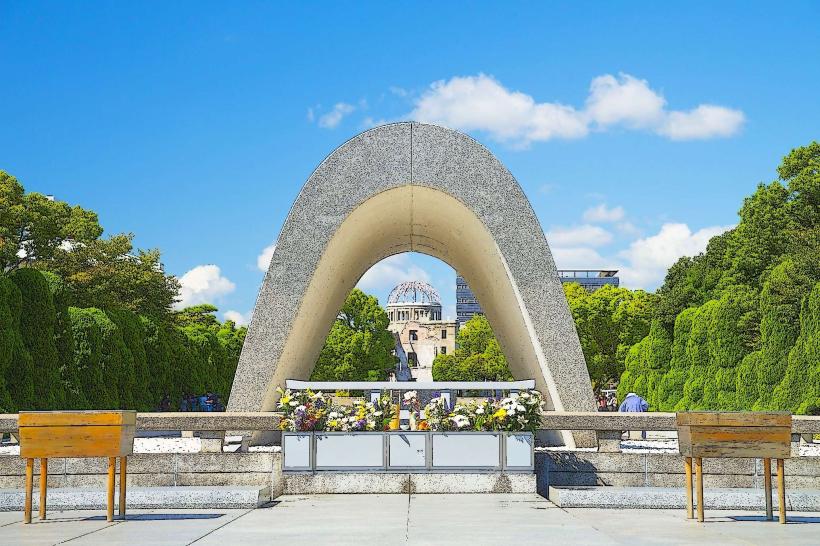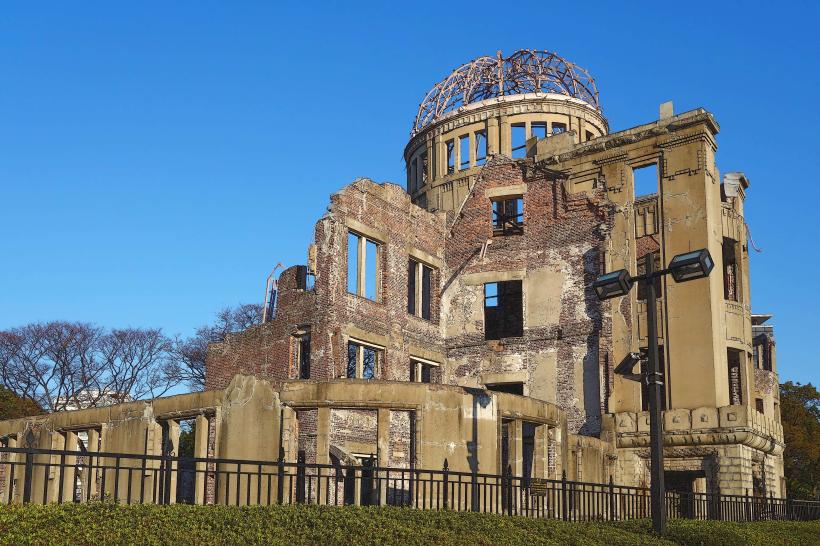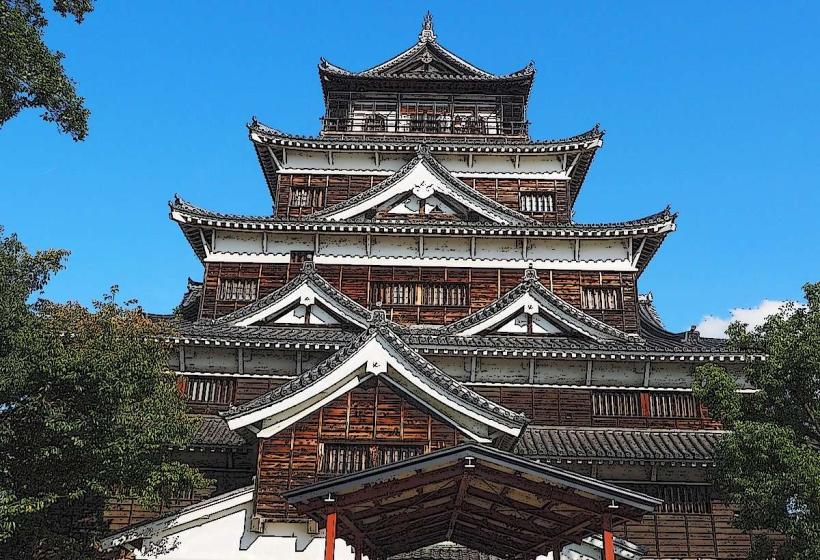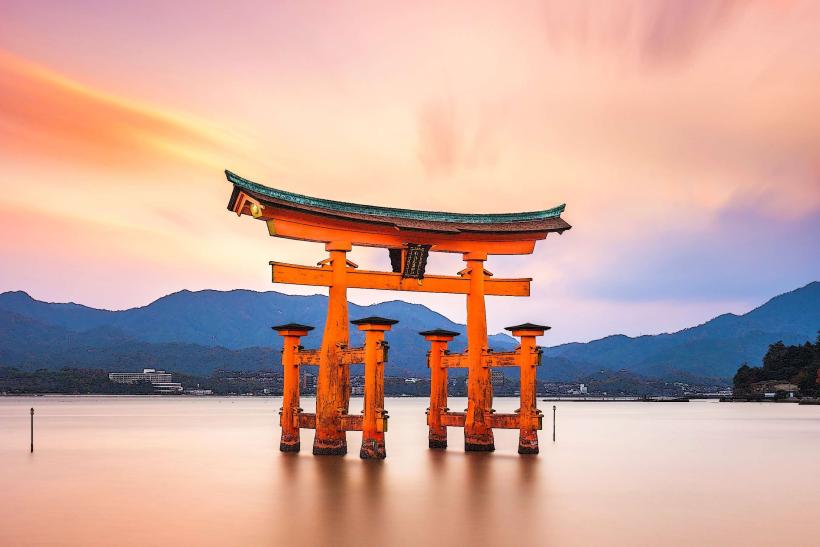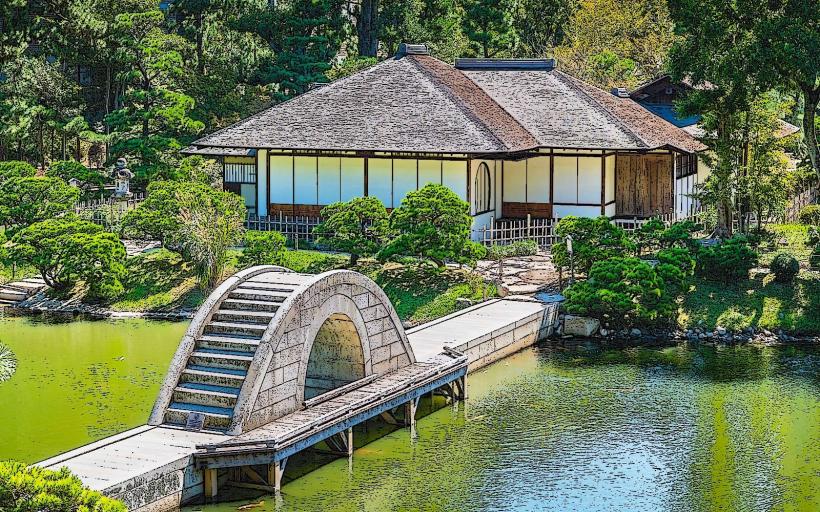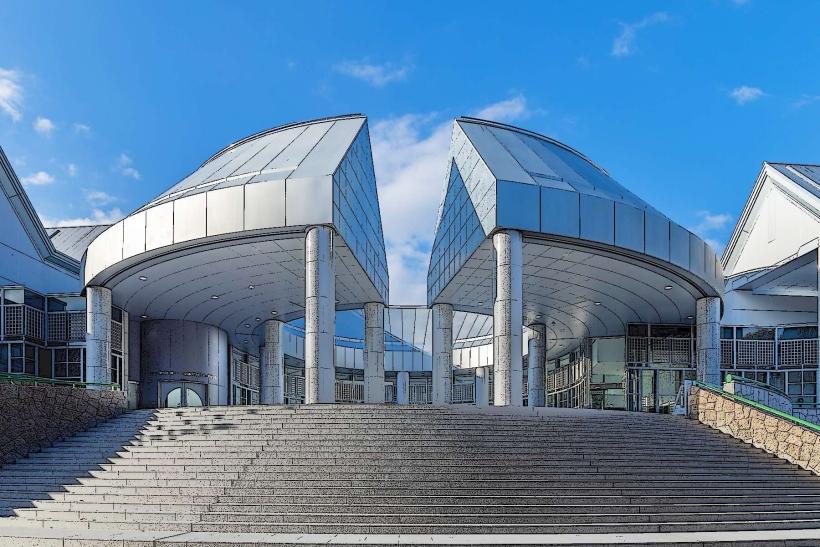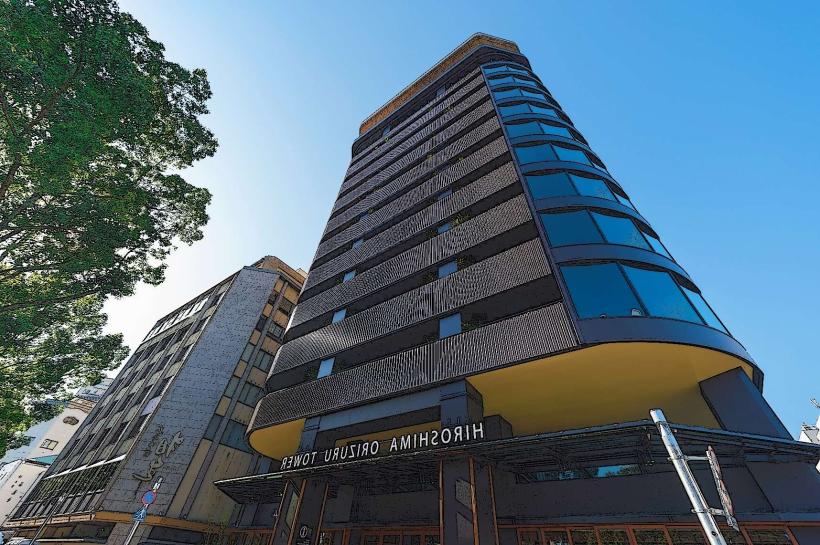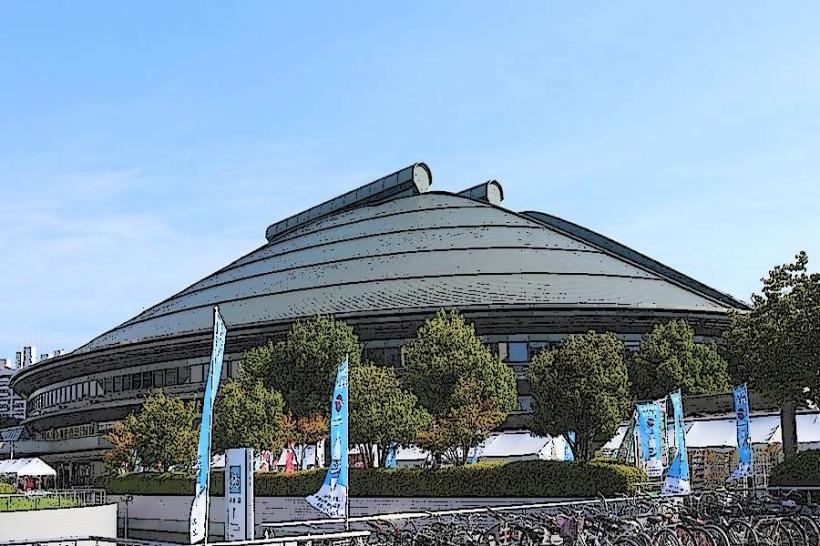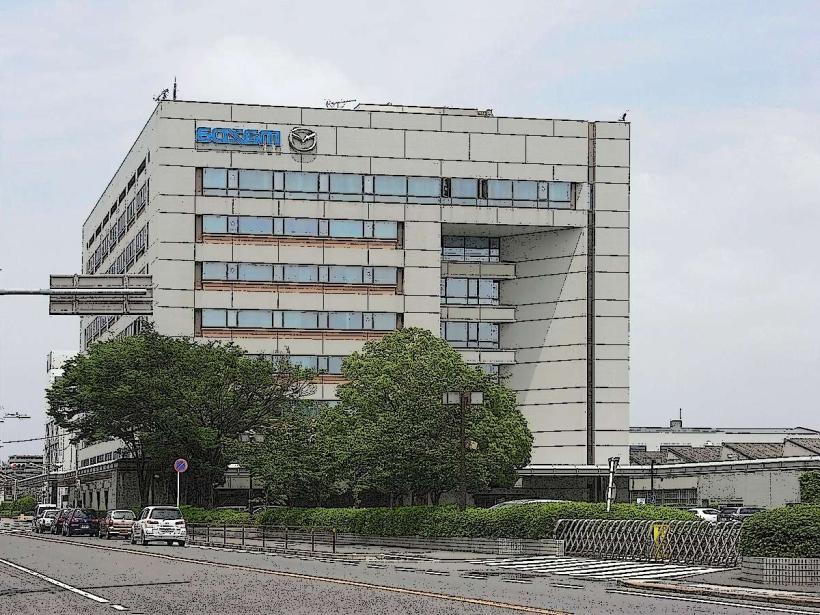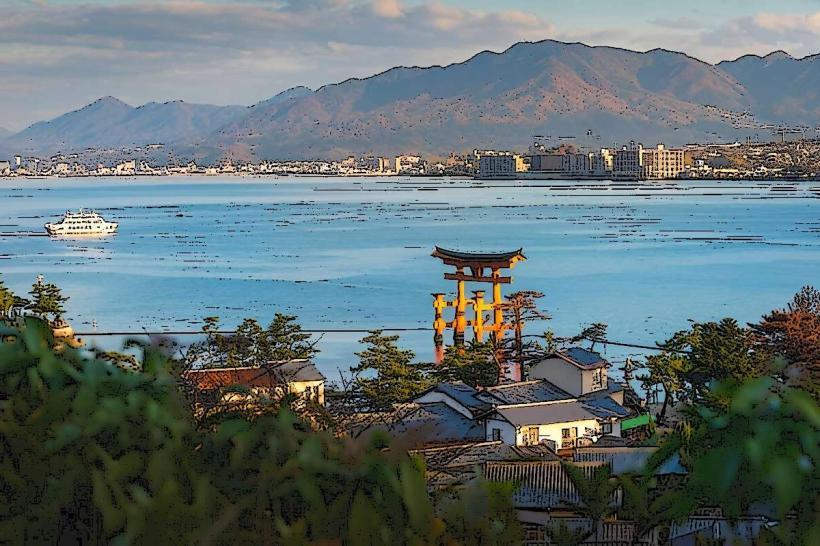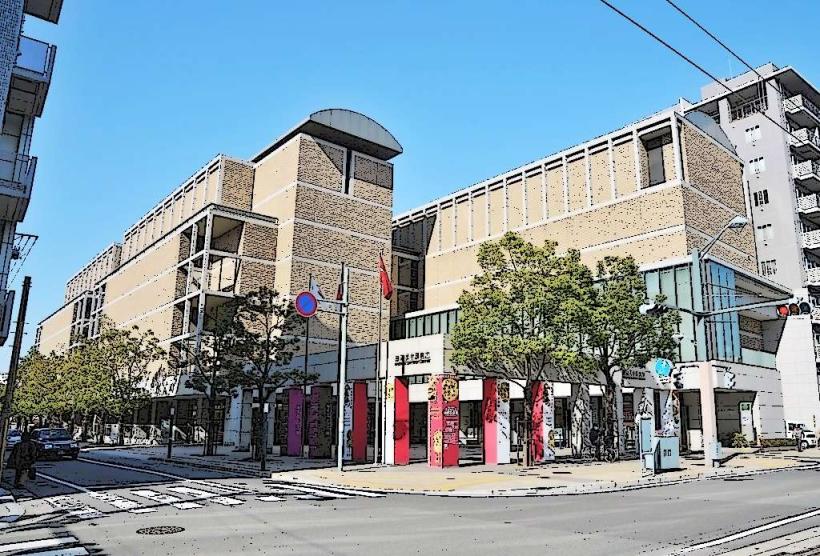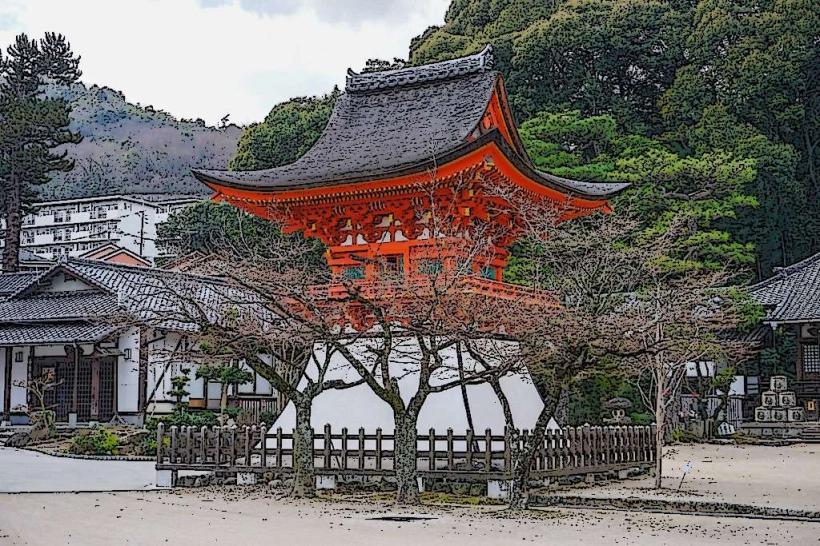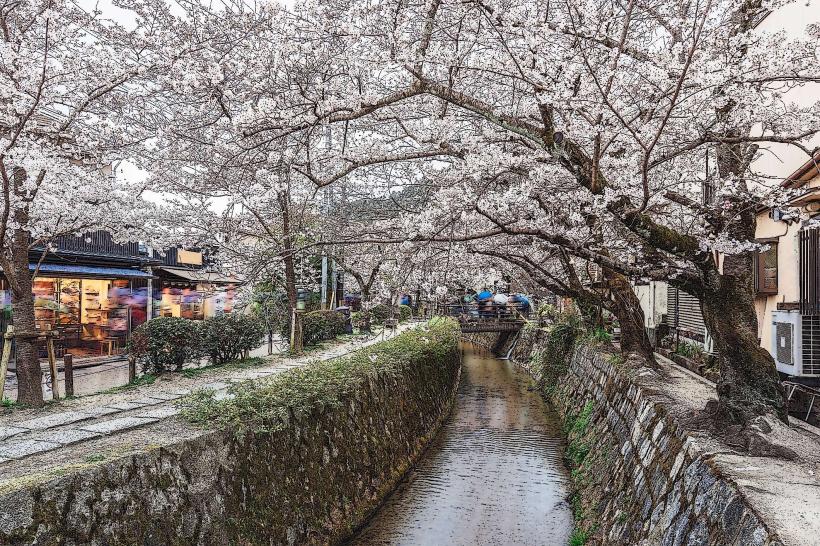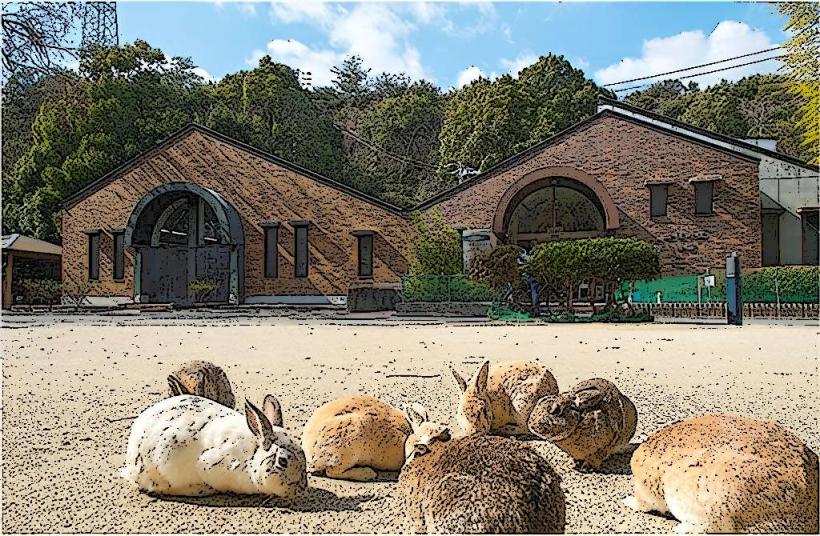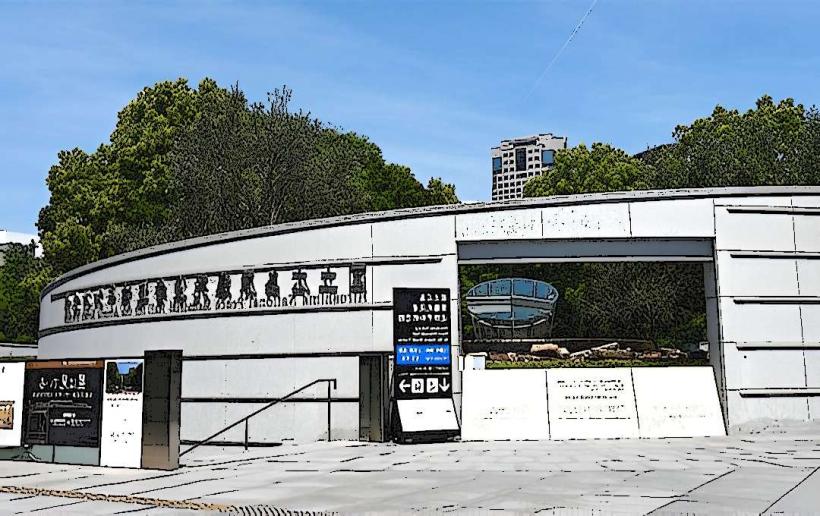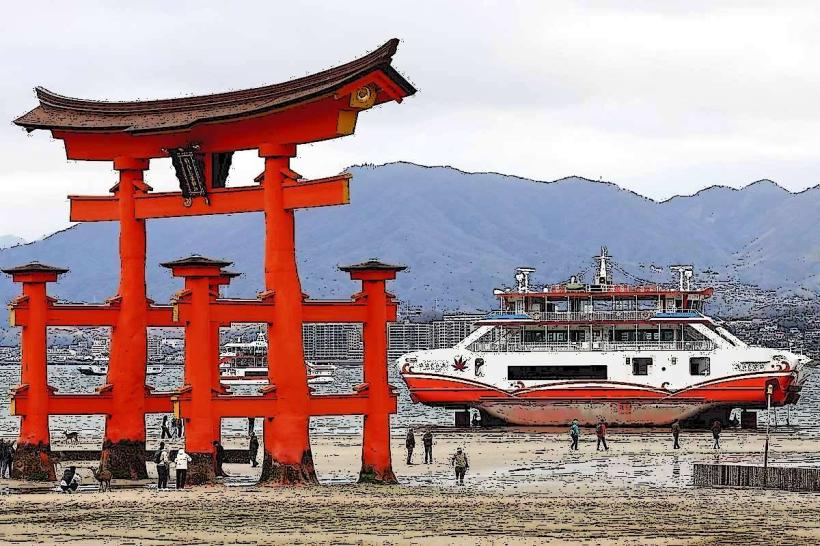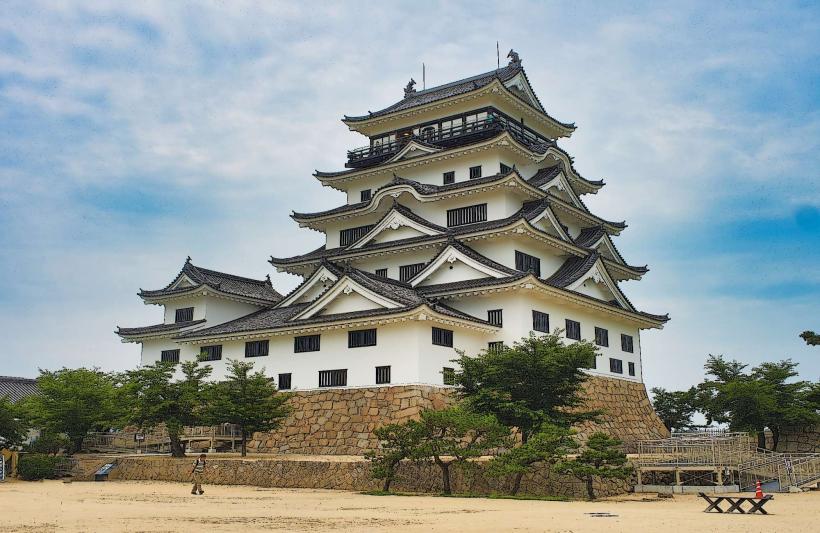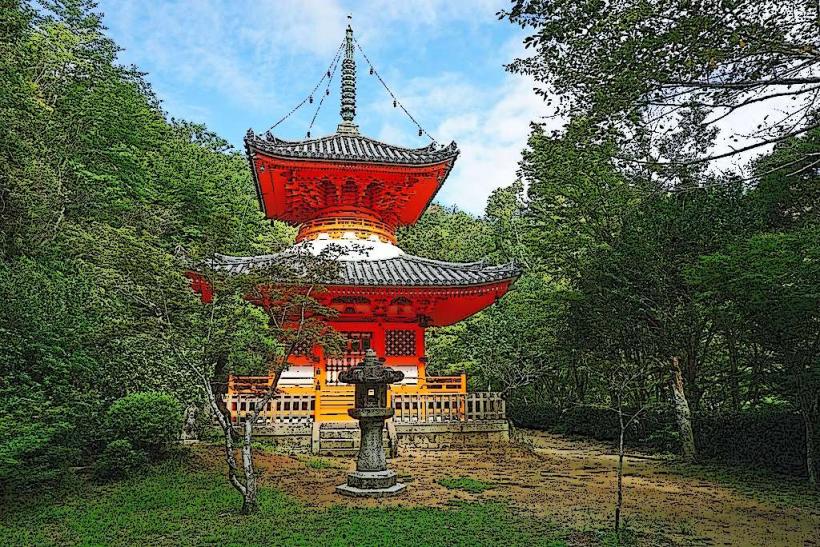Information
Landmark: Fukuromachi Elementary SchoolCity: Hiroshima
Country: Japan
Continent: Asia
Fukuromachi Elementary School, Hiroshima, Japan, Asia
Fukuromachi Elementary School is a memorial site located in Hiroshima, Japan, dedicated to preserving the memory of the atomic bombing.
The building is a reinforced concrete structure, painted in a neutral, light gray. It stands at three stories in height. The architectural style is functionalist, typical of public buildings constructed in the mid-20th century.
Location & Access Logistics
The school is situated 1.2 kilometers west of the Hiroshima Peace Memorial Park. Access is via Prefectural Road 266 (Hiroshima-Miyajima Line). The nearest tram stop is Genbaku Dome-mae (Atomic Bomb Dome), served by lines 1, 2, and 6, approximately a 10-minute walk from the school. Limited street parking is available in the vicinity; paid parking lots are located within a 500-meter radius.
Historical & Ecological Origin
The school was constructed in 1941. Its original purpose was to serve as a primary educational institution for local children. The building was severely damaged by the atomic bomb on August 6, 1945, but its structure remained standing, providing shelter for survivors. It was later rebuilt and reopened in 1947.
Key Highlights & Activities
Visitors can view the preserved ruins of the school building, including the partially collapsed roof and damaged walls. An exhibition space within the school displays artifacts and photographs related to the bombing and its aftermath. The site functions as a memorial, encouraging reflection on the human cost of nuclear warfare.
Infrastructure & Amenities
Restrooms are available on the ground floor. Limited shaded areas are present within the exhibition space. Cell phone signal (4G/5G) is generally available. No food vendors are located on-site; however, commercial establishments are present along the main road leading to the site.
Best Time to Visit
The site is open daily from 8:30 AM to 5:00 PM. Mid-morning (9:00 AM - 11:00 AM) offers optimal lighting for viewing the exterior structure without direct overhead sun. The site is accessible year-round, with no specific tidal or seasonal restrictions.
Facts & Legends
A notable artifact displayed is a partially melted clock that stopped at 8:15 AM, the precise moment of the detonation. The school's survival is often cited as a testament to the resilience of its construction, though the human toll within and around it was catastrophic.
Nearby Landmarks
- Hiroshima Peace Memorial Park (0.8km East)
- Atomic Bomb Dome (0.9km East)
- Hiroshima Castle (1.5km Northeast)
- Shukkei-en Garden (1.8km Northeast)

